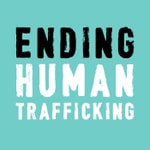Dr. Sandie Morgan and Dave Stachowiak discuss prosecution with Juliet Oliver, Deputy District Attorney Human Exploitation & Trafficking Unit Orange County District Attorney’s Office. Juliet has specialized in the prosecution of cases involving pimping, pandering, and human trafficking of both adults and minors. They discuss trading sex for survival, protocols for child sexual assault, and a couple of cases that Juliet prosecuted.
Key Points
Pimping is the act of receiving the proceeds, in some fashion, that is made from the prostitution activity of a victim.
Pandering relates specifically to the acts of trying to induce or persuade another individual to engage in prostitution activity. They do not have to have the intent to collect money from the prostitution activity.
In order to have prosecution for victims of survivor sex, especially for minors, there must be a pimp or trafficker responsible for the behavior in order to look at in a trafficking context.
Because human trafficking can present itself very differently and potentially not raise many red flags, it's important to educate the population, especially those that are in hospital settings and local law enforcement, on the signs of a potential victim.
Resources
169 - Dr. Jodi Quas: Communicating with Child Victims
Calhoun Article
Jefferson Article
Are you enjoying the show?
If you enjoyed this episode, please take a moment to subscribe or rate the podcast on iTunes by clicking here. Click here for FAQs about podcasts and how to subscribe.
Haven’t been receiving our newsletter? Visit our homepage to join today.
Contact us with questions, comments, or suggestions at
[email protected].
Transcript
Dave [00:00:00] You're listening to the Ending Human Trafficking podcast. This is Episode 221 - Keys to Successful Prosecution.
Production Credits [00:00:08] Produced by Innovate Learning, Maximizing Human Potential.
Dave [00:00:29] Welcome to the Ending Human Trafficking Podcast. My name is Dave Stachowiak.
Sandie [00:00:34] And my name is Sandie Morgan.
Dave [00:00:36] And this is the show where we empower you to study the issues, be a voice, and make a difference in ending human trafficking. Sandie, we talk often about partnerships and of course, one of the wonderful partnerships that we have in, so many of the conversations we have is with law enforcement and with the legal side of government. And today, I'm, so glad that we're going to be able to learn even more about successful prosecution. I'm glad to welcome to today's show Juliet Oliver. She has been a deputy district attorney for the Orange County District Attorney's Office since November 2008. Since becoming a deputy D.A., she has prosecuted a wide variety of juvenile and adult cases from driving under the influence to attempted murder. In March 2016, she was selected to join the Human Exploitation and Trafficking Unit, known as the HEAT Unit. She was a member of that unit until March 2020. There, Juliet specialized in the prosecution of cases involving pimping, pandering, and human trafficking of both adults and minors. Juliet has presented on the topic of human trafficking to many different audiences and is trained on the topic of the investigation and prosecution of human trafficking cases to law enforcement and other agencies locally and across the state. Juliet, we're, so glad to have you on the show with us.
Juliet [00:01:56] Thank you, so much. I'm delighted to be on your show. Thank you, so much for having me.
Sandie [00:02:01] Well, we are going to dig right in, Juliet, because I have lots of questions. And I often have people who bring their questions to me and say, can you find out, blah, blah, blah. And, so to have somebody with your expertise here is a real gift. So, thank you for carving time out to record this podcast with us.
Juliet [00:02:23] It's absolutely my pleasure.
Sandie [00:02:24] And I love that women are repr...

